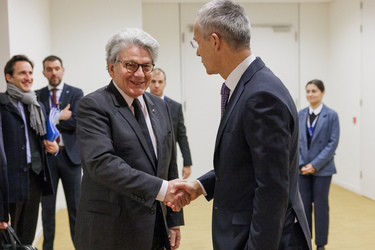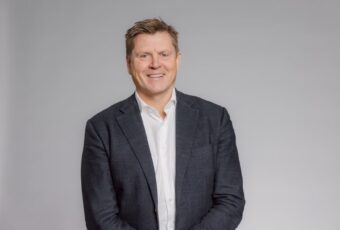
the European Commissioner responsible for the Internal Market.(Photo:NATO)
NATO Secretary General Jens Stoltenberg today (15 December 2022) welcomed the European Commissioner for the Internal Market, Thierry Breton, to the NATO Headquarters in Brussels.
“Today’s meeting sends a strong message of unity in the face of Russia’s brutal war against Ukraine,” Mr Stoltenberg said. “NATO’s initiatives with the defence industry and Allies to replenish our stockpiles and speed up the delivery of capabilities are vital as we continue to support our partner Ukraine and strengthen our own defences,” he added.
Commissioner Breton also briefed the North Atlantic Council today. It was a timely opportunity to take stock of the increased level of NATO-EU cooperation in the face of Russia’s illegal war against Ukraine, to reiterate the vital importance of fostering complementarity and coherence between NATO’s work and the EU’s efforts on defence, and to look ahead at ways to ensure NATO-EU cooperation grows even further. It is critical to continue this conversation and to make it operational. The fullest possible involvement of non-EU Allies in EU defence initiatives remains essential for NATO.
The meeting today was part of NATO’s regular engagement with EU counterparts. EU leaders participated in two NATO Summits this year, in Brussels in March and Madrid in June. High Representative Josep Borrell was invited to eight ministerial meetings at NATO in 2022, and European Commission Executive Vice-President Frans Timmermans also briefed Allies this January.
The unprecedented level of NATO-EU cooperation in recent years further accelerated in the aftermath of Russia’s invasion of Ukraine this year. On 24 February, the Secretary General gave a joint press conference with President Michel and President von der Leyen, sending Russia a strong message of unity between NATO and the EU. At the Madrid Summit in June, NATO leaders pledged to enhance the partnership between the two organisations. They agreed to further increase the cooperation on issues such as military mobility, resilience, the impact of climate change on security, new technologies, and addressing the security challenges posed by China’s coercive policies.



